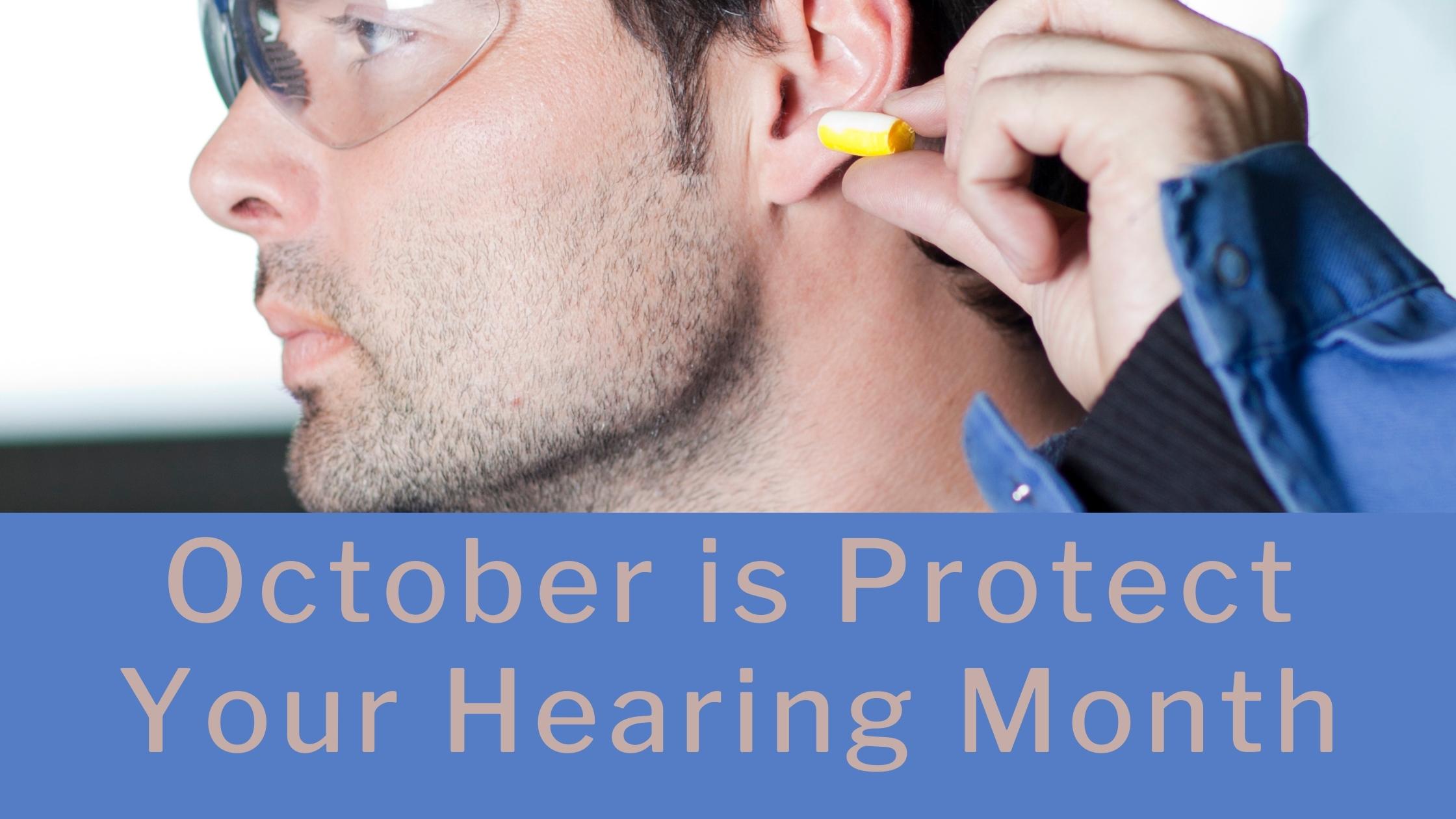October is the time of changing leaves, pumpkins, and warm apple cider. It also marks Protect Your Hearing Month; a national campaign led by the National Institute on Deafness and Other Communication Disorders (NIDCD) to raise awareness and educate about the perils of exposure to loud noise.
Where Are You Exposed to Noise?
Do you ever feel that sounds around you are too loud? They might be and you wouldn’t even know it. The Centers for Disease Control (CDC) reports that Occupational hearing loss is one of the most common work-related illnesses in the United States. Each year, about 22 million U.S. workers are exposed to hazardous noise levels at work. However, the workplace is not the only situation where you may be exposed to noise. People can be exposed to noise on their commute, in their home, or during recreational activities. Even your headphone can damage your ears if you listen to them too loudly or too long.
How Loud is Too Loud?
The intensity of sound is measured in decibels and any decibel level over 85dB can start to damage your ears. To put this in perspective, a normal conversation registers at around 60dB. A lawn mower or circular saw measures around 90dB. Proximity is an issue too. Levels of highway traffic noise typically range from 70 to 80 dB(A) at 15 meters (50 feet) from the highway. However, if you drive with your windows down, these sounds quickly become loud and can cause damage.
It is important to understand that it is not just the level of decibels but the length of exposure. An eight-hour exposure to 85dB will start to damage the ears, however at 88dB the exposure time drops to only four hours before damage begins. This is because decibels are based on human loudness perception. Increasing decibels by 10 dB is perceived as an approximate doubling in loudness but represents a tenfold increase in sound power. Personal listening devices such as smartphones and mp3 players can reach ranges of 100-120dB. At 100 decibels you can listen for 15 minutes before damage begins but at 120 damage is immediate.
How Noise Induced Damage Occurs
Sound is collected by the outer ear and sent into our ear canal through a chain of vibrations. Once it reaches the inner ear it causes vibrations in the small fluid filled organ called the cochlea. In the cochlea these ripples move tiny hair-like cells called stereocilia which transform the sounds into electrical pulses which are sent to the auditory cortex in the brain. While we hear with our ears, we process and comprehend these sounds with our brain. When sounds become too loud the vibrations become intense enough to cause the stereocilia to shatter or become destroyed against the membrane wall in which it’s held. The effects won’t become obvious at once. In fact, people often live years with hearing damage and don’t even realize it. However, this does not mean that hearing loss isn’t affecting you and your quality of life.
Effects of Untreated Hearing Loss
At first it just may be some tones, pitches or consonants which are lost due to hearing loss. Over time this can cause you to ask “what?” more and more often. You may mis-hear people and respond inappropriately. This is not a problem if it happens every now and then, but hearing loss is chronic and irreversible. These effects become more common over the years, causing rifts in your relationships at home and at work. This can affect your earnings in the workplace but also your self-esteem and confidence. It is common for those with untreated hearing loss to suffer from chronic depression, loneliness, and anxiety, leading to self-isolation. Hearing loss has also been linked to cognitive decline, dementia and a greater risk of accidents and hospitalizations if not dealt with.
Treating Your Hearing Loss
The good news is that with hearing aids, hearing loss is treatable. These amazing devices can amplify sounds, helping you to hear again. To learn how you can protect your hearing and how we can help, schedule a hearing exam today. We can give you more tips to help you hear your best for years to come.

